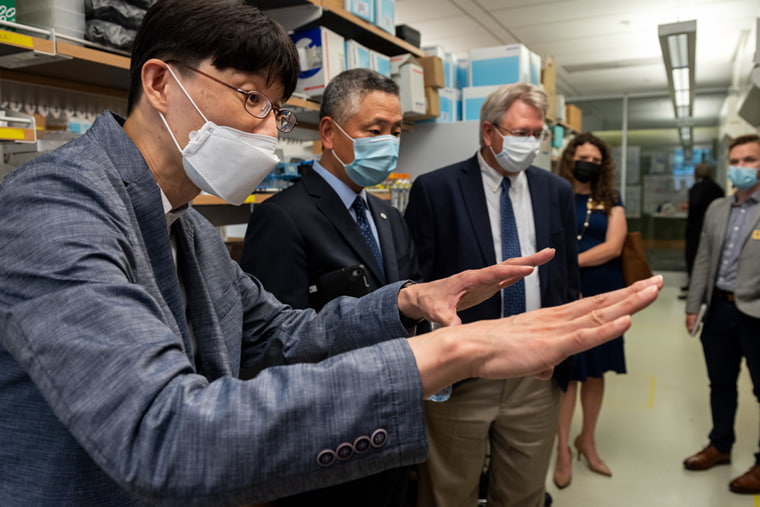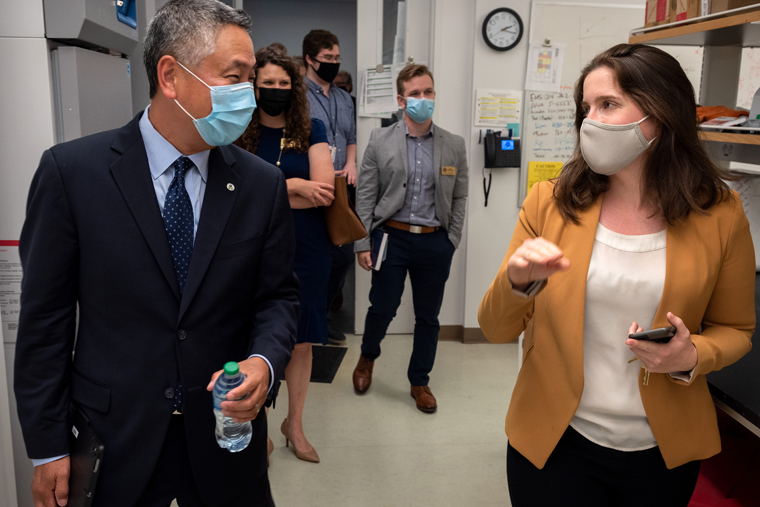EPA funds Moon’s biotech, containment research
The project in Tae Seok Moon's and Kim Parker's labs aims to expand the possibilities to use genetically engineered bacteria

The U.S. Environmental Protection Agency awarded a $744,262 grant to Tae Seok Moon, associate professor of energy, environmental and chemical engineering at the McKelvey School of Engineering, for cutting-edge biotechnology research.
Moon will be leading the project, which aims to expand the possibilities for use of genetically engineered bacteria and ensure the safety of their use. He will work with Kimberly Parker, assistant professor, who will investigate the behavior of the bacteria in real soil and surface water samples.
Moon’s lab has been working on a “kill switch” for engineered organisms that will self-destruct after completing a specified task, such as cleaning up a pollutant or rooting out and destroying a pathogen in livestock.

In addition to developing the technology, the EPA’s award also will support design of a system that allows researchers to safely study these microorganisms in the lab in conditions that match those out in the world.
“Our project will provide novel technologies that minimize the risks associated with environmental applications of genetically engineered microbes to ensure their biocontainment and public safety,” Moon said.
At a July 28 reception, Edward H. Chu, the EPA’s acting Region 7 administrator, presented Moon and Parker with a supersized check before taking a brief tour of their labs.
The funding is part of the EPA’s STAR program, which aims to stimulate and support scientific and engineering research that advances the EPA’s mission to protect human health and the environment. Washington University in St. Louis is one of five institutions receiving a total of $3 million in this round of STAR funding.

“Washington University is pushing science forward with this biotechnology research,” Chu said. “Genetically engineered microbes have a lot of potential to naturally break down pollutants, and the research Dr. Tae Seok Moon and his team are doing will help ensure that the solutions used in future applications are both responsible, effective and protective of human health.”
“This style of environmental engineering research project aligns with so many of the strengths within McKelvey Engineering,” said Aaron Bobick, dean of McKelvey Engineering and the James M. McKelvey Professor. “Professor Moon’s ability to harness the power of synthetic biology, coupled with Professor Parker’s expertise in fundamental chemistry to characterize chemical conditions in the wild, will result in effective tools from leveraging biological solutions to attacking critical environmental problems.”




